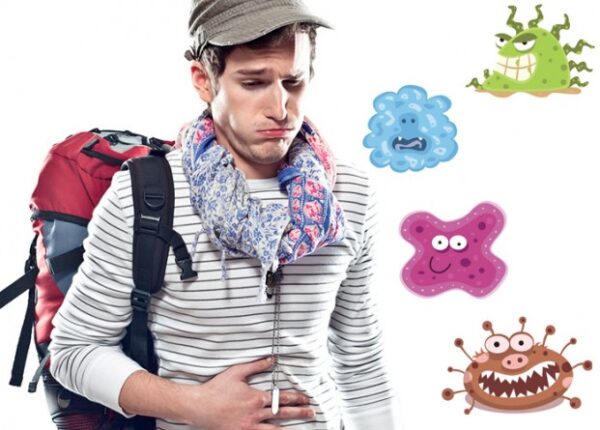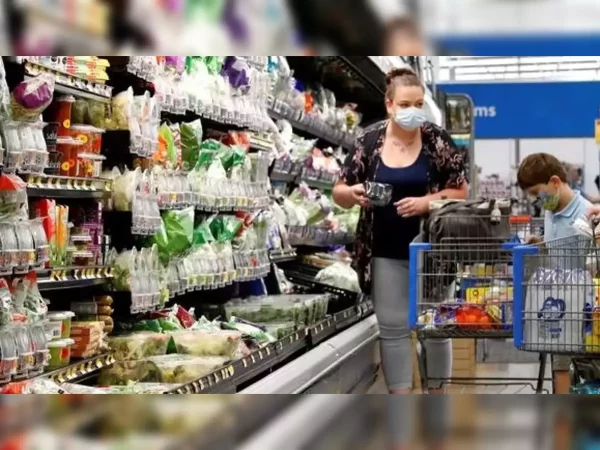Traveler’s tummy is the bane of any long-term backpacker’s existence. There’s nothing worse than diarrhea on a multiday hike or when you’re sharing a toilet with 12 other hostel dormmates. Well, maybe there’s one thing that’s worse: having the same symptoms when you’re on a romantic getaway. Really, there’s no good time for intestinal cramping, bloating, and loose bowels abroad.
Fortunately, there are a number of steps you can take to prevent tummy troubles before they start. There are also things you can do to counteract them if and when things do go awry. With a bit of preparation, good hygiene, and smart dietary choices, travelers’ tummy can be avoided or at least managed. Read on to learn how to keep your digestive tract on track while traveling.
Practice Good Gut Health
One of the easiest ways to avoid traveler’s diarrhea is to stay away from raw fruits and vegetables (see below). But lowering your fruit, vegetable, and overall fiber consumption can cause other gastrointestinal symptoms, like increased bloating and constipation. And when you skip out on fruits and veggies, you also lose vitamins, minerals, and antioxidants that keep you healthy.
To maintain optimal health while limiting your intake of raw vegetables, try a super greens powder. These vegan, sugar-free powders are packed with nutrients, so you can maintain a healthy diet no matter what. And they come in compact, lightweight, resealable packaging that makes them easy to transport in your suitcase or backpack.
Super greens powders are also a good option to take along on overnight buses or trains. They can be a refreshing treat in places where you don’t always have access to fresh, healthy food. You’ll thank yourself for bringing along something to ingest that doesn’t come in a foil tray or a deep-fried shell. Just make sure you mix them with clean, bottled or purified water or another safe liquid.
Watch Your Water
Tap water is probably one of the most common causes of traveler’s diarrhea, and it’s much harder to avoid than you’d think. In some countries, even swallowing tiny droplets of water while brushing your teeth can make you sick. This is because even these small amounts of water can contain loads of microscopic bacteria or even parasites.
When traveling in certain countries, always use bottled, boiled, or purified water for drinking, brushing your teeth, or rinsing food. In restaurants, check to make sure any ice cubes in your drink were also made from purified water. Sometimes fresh, uncooked produce is rinsed with tap water, so it may be best to avoid in restaurants.
It is possible to buy various products for purifying water as you travel. These include portable water filters and straws, as well as iodine tablets you can use in a pinch. But unless you’re doing any kind of backcountry hiking or camping, it’s usually simpler to buy or boil water. Small bottles are cheap and widely available in most countries, or for longer stays, you can buy a large cooler-sized bottle.
Avoid Unpeeled Vegetables and Undercooked Meat
There are numerous articles warning of the dangers of street food, and some wary travelers refuse to eat it. But street food is often safer than the food you get in tourist restaurants, as long as you know what to look for. In general, pay attention to your surroundings and look for good hygiene as you would back home. That way, you should be just fine experimenting.
Some frequent culprits behind food poisoning and traveler’s diarrhea are undercooked meat, lukewarm food, and raw, unpeeled vegetables. Refrigeration standards for raw meat may not be the same as in your home country, meaning meat is likely to contain more bacteria. But if it’s cooked thoroughly, this lessens the chance of your contracting an illness.
Raw vegetables can also be vehicles for bacteria from animal feces or contaminated water. When eating veggies abroad, always peel or cook them first, and remember not to wash them in tap water. Lastly, avoid lukewarm food of any kind; food that’s been sitting out for a long time is more likely to make you sick.
Eat Where the Locals Eat — Sometimes
This advice may be controversial for some travelers, but in general, plan to eat where the locals eat. Specifically, look for places with crowds of clientele — especially if employees’ hands and the facilities look clean. Chances are, if a place keeps locals coming back, it’s not because it’s making them sick. By contrast, tourists are likely to dine somewhere once and never return, so touristy restaurants are often hotspots for infection.
When you scout out a place to eat, try to get a peek at the food prep area. This is easier outside than in most restaurants, but it’s usually possible. Look for clean floors and surface prep areas, which reduce the chances of contamination. Make sure meat isn’t being stored at room temperature or dripping on other surfaces.
Wash your hands or use hand sanitizer before you eat street or market food so you don’t introduce contamination from nearby sources. And choose street or market stalls with hot food and plenty of clients waiting to eat or order. Restaurants, market stalls, and carts without lots of customer traffic can be hotbeds for stomach illness. This is because the turnover isn’t as fast, so the food sits out longer, potentially collecting bacteria.
Medications and When to See a Doctor
Even if you take all the care in the world, you may still get sick at some point on a longer trip. And if you’ve got a day of sightseeing or an overnight bus on your itinerary, diarrhea could spell disaster. Always carry a good supply of Imodium or other antidiarrheal meds in your pack. Add any additional stomach meds you might need, like Pepto Bismol or activated charcoal.
If you think you may have a more serious illness or a parasite, visit a local doctor or pharmacist. They can usually prescribe an antibiotic or other (usually) low-cost medication to counteract the infection. If you’re still having symptoms when you get home from your trip, make sure to follow up with your own doctor. You could have a more long-term condition, like giardia, that needs treatment. With the correct remedies, you’ll soon be put to rights — and be eager to plan your next adventure.





